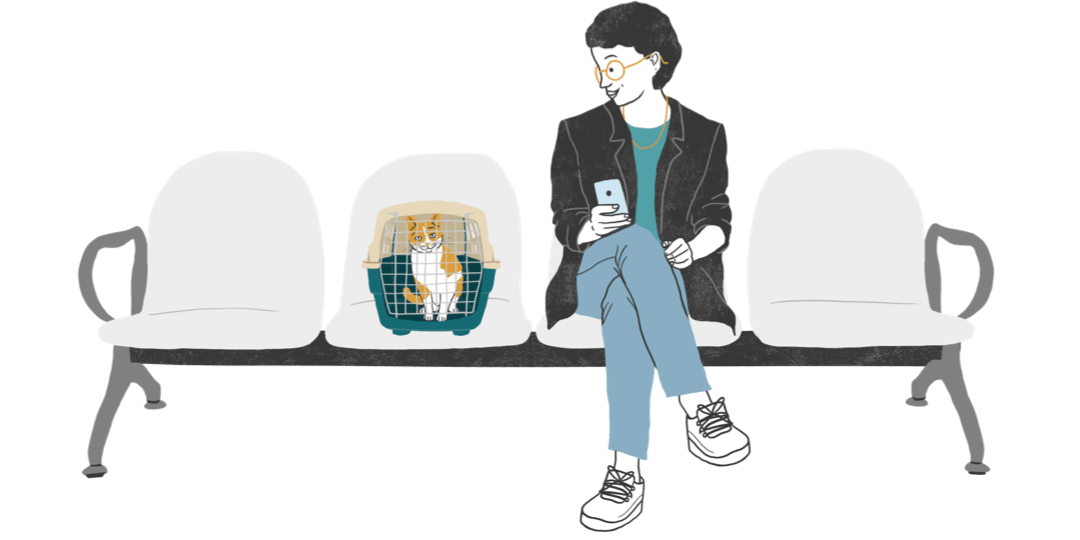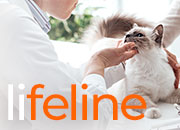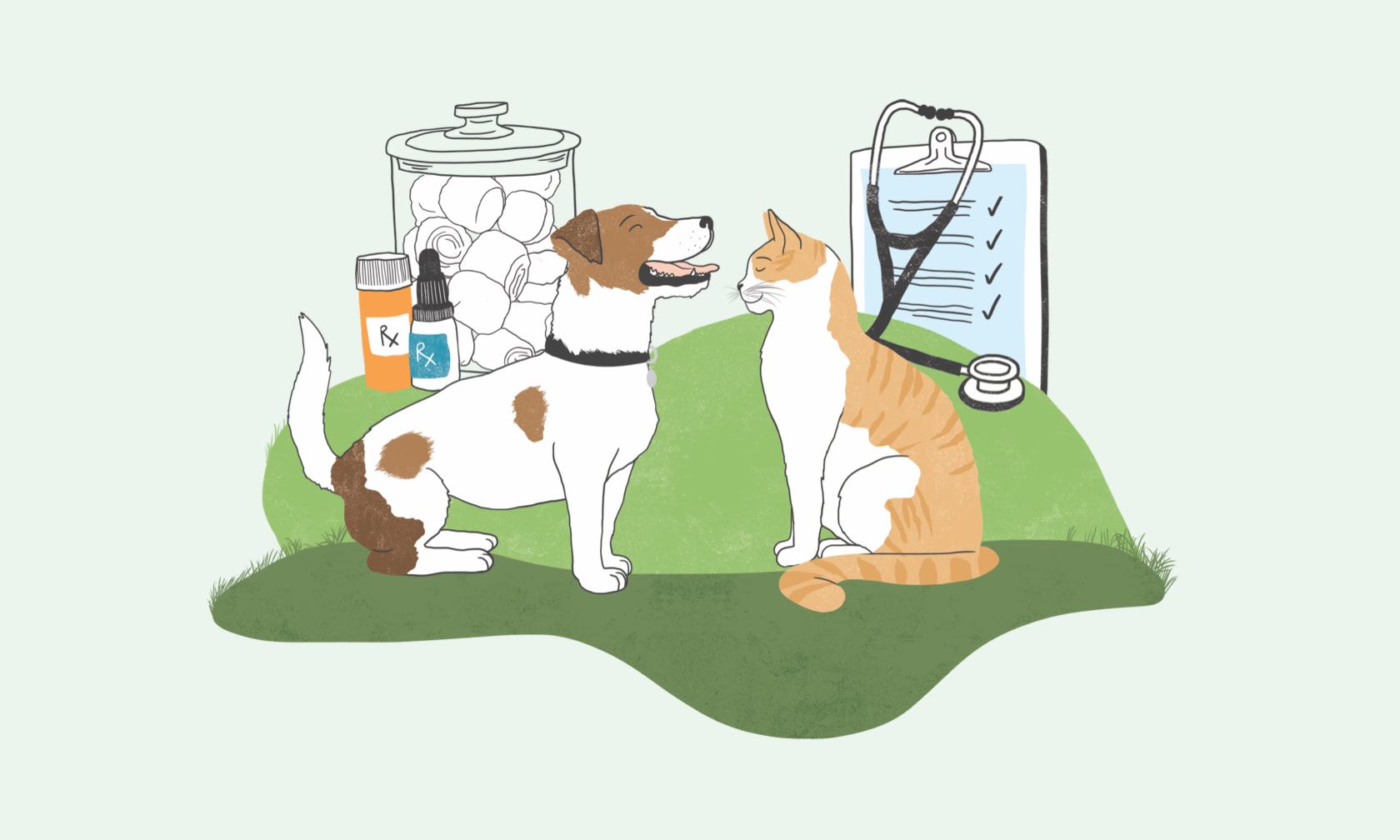The only time most cats are put into their carrier is when they go to the veterinarian, so it’s no wonder they get freaked out as soon as their carrier comes out of the closet. A lot of the stress that cats experience related to the vet visit happens before they actually see the veterinarian. With a little preparation, you can help to ensure your cat (and you) have a stress-free visit to the vet.
Before You Go to the Vet
Make the Carrier Less Scary
Chances are, the only time your cat sees their carrier is when you’re about to take them to the veterinarian. You can make the carrier less scary by setting it up like a safe place they can hang out in on a regular basis. To entice them into their carrier, make it a comfortable place they want to spend time by putting a blanket, a toy, and treats inside (this also gives them a familiar smell of home). You can also feed them inside the carrier to get them more acclimated to being in it. Just by seeing the carrier in their everyday environment, your cat will become more used to it and avoid the dread they feel when it mysteriously shows up out of the blue.
Keep Your Cat Calm
Calming pheromones can help your cat calm themselves in their carrier. Simply spray a spritz or two in their carrier the night before the appointment and again on the day of the appointment to allow the pheromones to calm your cat.
Consider Catnip
This herb can relax your cat, helping them associate a trip to the vet something a lot more fun. Catnip’s effects typically only last for 5–15 minutes, but it doesn’t affect all cats. Occasionally, cats will become agitated when they smell catnip, so it’s a good idea to give your cat a trial dose first to see how (and if) they react before you ever need it for a trip to the vet.
Get Your Cat Used to Being Handled
Practice holding your cat and examining them from head to tail. This will help your cat feel less stressed when the vet or veterinary technician gives them an exam.
Bring Your Cat on Car Rides
It’s likely that the only time your cat rides in the car is on the way to the vet. You can try to disassociate car rides with a trip to the vet to reduce their stress. Some cats will never get used to car rides, but others just need a few minutes in the car or a couple drives around town that doesn’t end up at the vet office to help calm their nerves. If desensitizing your cat to the car works, make sure to take your cat on rides every once in a while to keep them from becoming distressed again.
Consider Visiting a Cat-Friendly Vet
Did you know that there are veterinary practices that have completed specific training and taken additional steps to focus on the needs and care of cats? Certified Cat Friendly Practices® understand the unique needs and behaviors of cats and provide a lower-stress environment to help your kitty get the best possible care. Look out for cat-only offices, too!

At the Veterinarian’s Office
Keep Your Cat in Their Carrier
When you get to the vet and are in the waiting room, keep your cat in their carrier. Keep the carrier off the floor to make your cat feel more secure (and prevent curious dogs from peeking in and frightening your cat). With many people and animals in the same room, most cats will feel safer and less stressed in their carrier.
Schedule Visits During Slow Times
When scheduling your cat’s next appointment, ask when their slow times are and try scheduling appointments when the vet clinic is less busy. This can help reduce the stress that your cat experiences before they even get into the exam room.
Bring Something From Home
An item in their carrier like a blanket from home can help bring your cat comfort while waiting to be seen. If your cat needs to spend a night at the vet, make sure to bring an item from home like their favorite blanket or toy to help them settle easier.
Consider Medications and Supplements
If your cat has a history of being stressed when visiting the vet or is still stressed after trying the steps above, chat with your veterinarian prior to your next appointment. They may be able to recommend medications and/or supplements that can help reduce your cat’s anxiety and allow them to do better with their vet visits.
ZPC-00438R2




